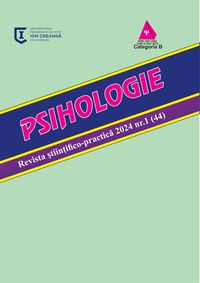The relationship between attachment styles, psychological disorders, and mentalization capacity
The relationship between attachment styles, psychological disorders, and mentalization capacity
Author(s): Ștefan POPOVSubject(s): Social Sciences, Psychology, Cognitive Psychology, Clinical psychology, Behaviorism
Published by: Asociaţia Psihologilor practicieni din Moldova
Keywords: attachment theory; internal working models; psychopathology; mentalization; mentalization-based therapy
Summary/Abstract: Attachment theory is widely regarded as one of the most significant advancements in psychology. Originally focused on early childhood development, it has expanded to offer insights into a broad spectrum of psychological disorders in adulthood. Additionally, some scholars propose that attachment theory could serve as a unifying framework in psychotherapy. If psychological disorders stem from attachment disturbances, then therapeutic interventions should theoretically impact attachment styles. However, there remains ongoing debate regarding whether attachment styles remain fixed throughout life or can adapt in response to environmental factors or psychotherapy. This theoretical study seeks to provide greater clarity on the malleability of attachment styles, the association between attachment and psychological disorders, and the examination of mentalizationa central concept in the genesis of psychological disorders. Mentalization is not only seen as a core feature of attachment styles but also as a key process in psychotherapy.
Journal: Psihologie, Revistă ştiinţifico-practică
- Issue Year: 44/2024
- Issue No: 1
- Page Range: 52-63
- Page Count: 12
- Language: English

